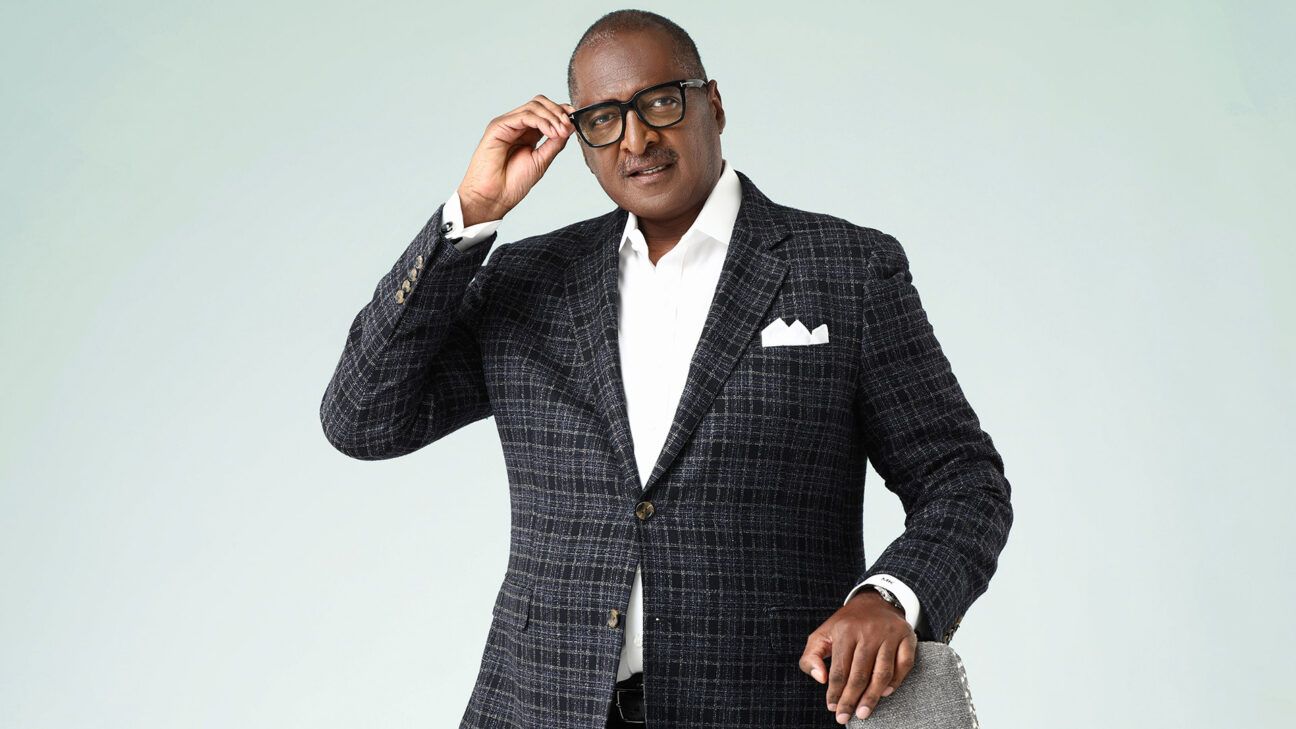Beyonce’s Dad, Mathew Knowles, Details His Journey to Become a Breast Cancer Survivor


- Beyonce’s father is opening up about his journey with breast cancer.
- Mathew Knowles wants men to know they can get breast cancer, too.
- He is working to raise awareness about breast cancer gene mutations and the importance of screening.
With superstar daughters like Beyonce and Solange, Mathew Knowles may be one of the most famous dads in the U.S. However, he is also a music executive, entrepreneur, motivational speaker, and breast cancer survivor.
In 2019, after noticing bloody discharge from his nipples, he sought medical attention. His doctor ordered a mammogram, ultrasound, and a biopsy, which led to a stage 1A breast cancer diagnosis.
About 1 out of every 100 breast cancers diagnosed in the United States is discovered in a man.
“There’s an amount of shame sometimes that men have with male breast cancer, but the more you talk about it, the more I find, the more you are open, it loses its power. For me, it does, so I talk about it,” Knowles told Healthline.
How Mathew Knowles’ breast cancer was treated
Knowles’ treatment involved a mastectomy.
Because men have a small amount of breast tissue, they typically need to have the entire breast removed to be treated with cancer in the breast, said Maria Castaldi, MD, Director of Breast Health Services at NYC Health and Hospitals.
“However, if the tumor is small enough, men may have the option of breast conservation and only removing the cancerous part of the breast. This option of partial breast removal, though, requires radiation after surgery,” she told Healthline.
Knowles did not require radiation after his mastectomy. Around the time he had surgery, he also underwent genetic testing, which revealed he carries the BRCA2 gene mutation.
What is the BRCA2 gene mutation?
Castaldi explained that everyone has the tumor suppressor genes BRCA1 and BRCA2, which are important in fighting cancer.
“When a person has a mutation in one of these genes, the genes are prevented from working normally. BRCA tests determine if a person has a mutation in the gene, and if so, then it raises a person’s risk for breast and other cancers,” she said.
While 13% of women in the general population will develop breast cancer in their lifetime, more than 60% of women who carry BRCA1 or BRCA2 gene mutations will.
“If a man has a BRCA2 mutation, they have a 6% absolute risk of having breast cancer in his lifetime. This is 100 times higher than the general male population,” Wassim McHayleh, MD, medical oncologist and clinical program director for the Breast Cancer Program at the AdventHealth Cancer Institute, told Healthline.
Men who inherit a BRCA1 or BRCA2gene mutation also have a higher risk of developing prostate and pancreatic cancer.
Why Knowles receiving genetic testing may help Beyonce, too
The children of people with BRCA1 or BRCA2 gene mutations have a 50% chance of inheriting it from their parents. Knowles knew of several family members who died of breast cancer on his mother’s side, including his aunt and her two daughters. On his father’s side, four of his uncles died of prostate cancer.
Because men can inherit a BRCA defective gene from either their father or mother, Castaldi said it is important to know of close relatives, men or women, who have cancer at a young age, or female relatives who have ovarian cancer.
“These details are a significant part of family history for men and could be an indication that a man should undergo BRCA testing,” she said. “Once you are aware of a possible mutation, you can work with your physician to develop a cancer risk management assessment program for certain screening tests.”
With such a strong familial connection for Knowles, he was happy to be able to share genetic knowledge with his family.
“It’s critical. I wouldn’t want my kids or my wife or my brother, sister, not to be informed,” said Knowles. “That’s the beauty about genetic testing…it gives you the information, and it allows you to share that information with the people you love.”
To spread awareness about genetic testing, he partnered with AstraZeneca and its BeBRCAware campaign, which aims to educate people about the importance of genetic testing, understanding family history and risks for breast, prostate and other cancers, and how the presence of an inherited BRCA mutation can help inform your care.
Knowledge is power for Knowles
July marked five years since Knowles was diagnosed with breast cancer. He has not had any recurrences since.
“I’m very grateful. That’s kind of the benchmark that you can kind of breathe,” he said.
However, he is proactive in prioritizing his health. After his diagnosis, Knowles lost 30 pounds, changed his diet, and continues to exercise regularly. He also takes screening seriously. Each year he gets a mammogram and MRIs of his prostate and has his PSA levels tested for prostate cancer.
He says fear of knowing may be why some men and women don’t get screening tests done.
“I’m just the opposite because I worked 20 years in diagnostic imaging. I understand the earlier you find something, the better the results,” said Knowles. “I understand that and in our lifetime, something might happen. None of us are going to live to be 200 years old. I’d much rather find it early than find it at a later stage.”
In fact, Castaldi pointed out that breast cancer in men has traditionally been reported to have a worse prognosis than breast cancer in women based on later stage at diagnosis as well as older age commonly observed in men with breast cancer.
“Lack of early detection and disparities in treatment were believed to be responsible for worse outcomes,” she said.
For men who are at higher risk of getting breast cancer, McHayleh said they can perform monthly self-breast examines starting at age 35, a clinical breast examination once a year, mammography at age 50 or 10 years before the age of the earliest known male family member who had breast cancer.
Regarding prostate cancer, he said screening should start at age 40.
“[If] there is a strong family history, genetic counseling is indicated with appropriate genetic testing,” he said. “Early detection allows cancer diagnosis at early stage with a much higher cure rate.”
Knowles hopes men take this to heart. Although he has talked about female breast cancer for decades due to his work selling mammography equipment in the 1980s, he said this era requires expanding on that message.
“Now I’m talking more or equally about male breast cancer and prostate,” he said. “I have a platform…I want to use this platform to save lives, and [I’m] grateful that I have it.”
Source: View source
